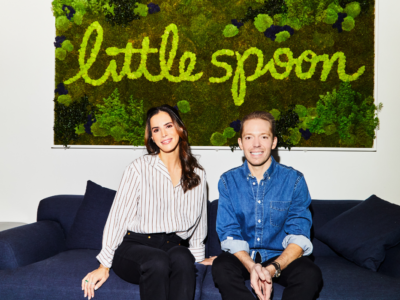Navigating the baby food aisle at grocery stores and online can be a challenge. With so many options on the market, all with different claims, choosing the right foods for your child can be overwhelming, especially with all of the recent reports on heavy metal content in baby foods1. But I’m here to make it easier and a little less scary for you. I’m both a scientist and STEM Educator who has dedicated my life to making complex topics digestible. I’m also a mother to a toddler with a baby on the way— so I know first hand how stressful it can be to make the “right choice” for everything related to our babies. I hope to shed light on the facts of heavy metals in baby foods to help parents better make informed choices that best support the health and well-being of their children.
MYTH: Heavy Metals never used to be in our baby foods.
- FACT: When referring to heavy metals in baby foods, we are speaking to the most common metals that get into foods listed by the U.S. Food and Drug Administration (FDA), which include Lead, Arsenic, Cadmium, and Mercury2. While recent reports measuring heavy metal content in baby foods may suggest that their presence in foods is new, it’s not. Trace amounts of heavy metals, as well as other pollutants, can be naturally found in foods because of their presence in soil, air, and water. Food processing, pesticide use and general pollution contribute to these increased amounts in food—particularly in rice-based foods, root vegetables, and fruit juices.
MYTH: It’s best to avoid all baby foods with heavy metals in them.
- FACT: Metals are naturally found in the earth’s crust. Pairing these natural elements with increased presence of toxins, contaminants and heavy metals due to pollutants and lack of regulation makes complete avoidance across the food system unrealistic. Unfortunately, it will take decades to reverse this increased presence through strong federal regulation. This reality can understandably cause stress for parents (or anyone consuming food in the U.S.!) seeking alternatives, but the goal is to minimize exposure as much as possible. Parents should strive to understand how to limit their child’s exposure. A great way to look at this is to understand that the “dose determines the response.” This means that exposure does not necessarily indicate that a bodily response will take place. In fact, much testing has been done in places like Canada3 and the EU4 to show the limits at which these heavy metals can be consumed to prevent possibly harmful outcomes. Here in the United States, we still lack comprehensive regulations on heavy metal limits in baby food, though the FDA has shown a commitment to driving initiatives aimed at reducing these contaminants while ensuring continued access to nutritious foods5.
- One effective way to lower exposure is by choosing trusted brands like Little Spoon that prioritize safety and transparency. Little Spoon is the first and only brand in the United States to set strict limits for more than 500 toxins and contaminants, based on the best-in-class EU standards. This includes heavy metals, pesticides and plasticizers. The best part? All of Little Spoon’s finished Babyblends, Cereal, and Biteables will be tested by a third-party accredited lab and no product will be sold unless it passes their testing. This offers parents tremendous transparency in an otherwise challenging industry to navigate. Learn more about their commitment here.
MYTH: Organic baby foods are better because they don’t have heavy metals in them.
- FACT: This is something I assumed when I first started feeding solids to my son—before I learned more. The value of certified organic produce is that consumers can have peace of mind that the food is grown without synthetic pesticides and where seriously rigorous farming practices are employed. That is definitely a big deal and vote of confidence. While organically grown foods may not be exposed to as many pesticides, such as glyphosate, they are still grown in soils that naturally contain trace amounts of heavy metals. Root vegetables like sweet potatoes or carrots for example, are grown in soils that contain trace amounts of heavy metals in them. Depending on the heavy metal content of the soil, the plants and vegetables themselves will take up varying amounts. It’s important to know where the food you are consuming is coming from, which is why Little Spoon only sources produce from their trusted farm partners who undergo rigorous safety and quality standards. Starting with nutritious soil = nutritious food. While there is no way to fully avoid exposure, you can opt for food that limits the amount of trace metals that baby foods may be exposed to pre-harvest and during processing procedures. Little Spoon’s Babyblends, Puffs, Cereal, Biteables, Smoothies + YoGos offer parents a great option.
MYTH: Preparing my own baby food at home is the safest option to feed my baby.
- FACT: This may not be the case. In our last example with sweet potatoes, we see that small exposure to heavy metals in vegetables is unavoidable, and that’s okay! While preparing foods at home may reduce additional exposure to contaminants that might happen through processing procedures, the amount naturally found in the foods will remain. It is also important to note that preparing baby food at home may not be an accessible option to all parents. Rather than focusing on preparing their own baby food, parents should strive to expose their children to a variety of foods including whole grains, proteins, and fresh fruits and vegetables. I love Little Spoon because they have such a diverse menu of over 35 freshly made Babyblend flavors that include a variety of USDA Certified Organic ingredients which is SO important and it’s honestly so easy because they are already made for you. To limit exposure, parents can reduce their child’s overall intake of rice-based foods and snacks as well as fruit juices6. And when choosing what rice to serve your child, you can opt for white basmati rice or sushi rice rather than brown rice, as they are known to contain the lowest level of arsenic in them7.
MYTH: Baby food companies care more about profits than the health of our children
- FACT: While I cannot speak for all baby food companies, I am very happy to know that companies like Little Spoon are making big strides to be as transparent with parents as possible when it comes to the trace amounts of heavy metals in their food products. And frankly, I don’t think they could be any more transparent and empowering for parents! Little Spoon is testing for 500+ toxins and contaminants including heavy metals, pesticides and plasticizers and sharing the results of every food batch with the public. The results are displayed on every single Babyblends, Cereal, and Biteables product page and any product that falls outside of their safe threshold will be discarded and not sold. This shows their commitment to the health and safety of all children and choosing that over business profits. I hope that with the Little Spoon, Big Change initiative, other major baby food companies will follow suit.
When choosing the right baby foods for your child many questions may arise. We hope we were able to shed light on the facts surrounding common baby food myths when it comes to heavy metals. Together you can make informed decisions to help boost your confidence with the baby food choices you make.
- https://www.health.harvard.edu/blog/heavy-metals-in-baby-food-what-parents-should-know-and-do-2021030522088 ↩︎
- https://www.fda.gov/food/chemical-contaminants-pesticides/environmental-contaminants-food ↩︎
- https://www.canada.ca/en/health-canada/services/food-nutrition/food-safety/chemical-contaminants/maximum-levels-chemical-contaminants-foods.html#a4 ↩︎
- https://eur-lex.europa.eu/EN/legal-content/summary/maximum-levels-for-certain-contaminants-in-food.html ↩︎
- https://www.fda.gov/food/environmental-contaminants-food/closer-zero-reducing-childhood-exposure-contaminants-foods ↩︎
- https://www.healthychildren.org/english/healthy-living/nutrition/pages/fruit-juice-and-your-childs-diet.aspx ↩︎
- https://nyscheck.org/heavy-metals-in-baby-food-and-juice/ ↩︎



